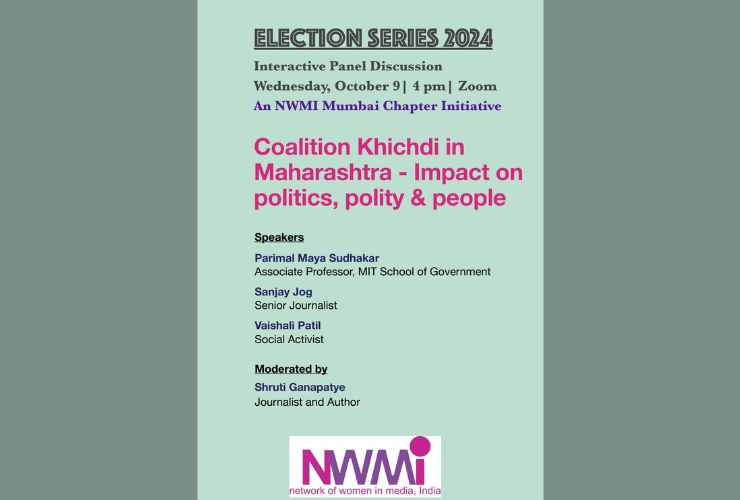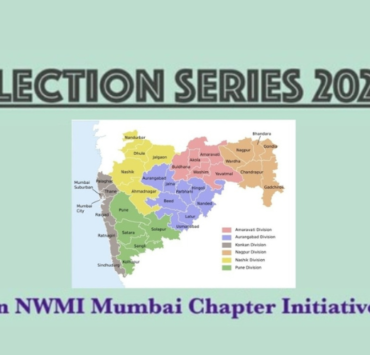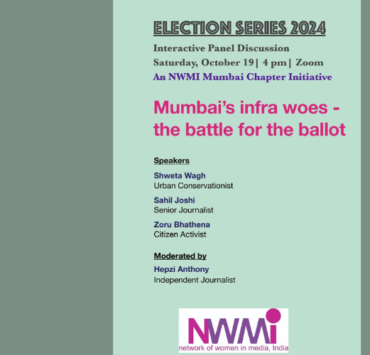
By Editors

On October 9, 2024, experts discussed the intricacies of coalition politics in a state that is witnessing significant political shifts ahead of the upcoming Assembly elections.
The fractured political landscape in Maharashtra is affecting governance. The splits within the Shiv Sena and NCP, coupled with the growing power of the Bharatiya Janata Party (BJP), have created a complex and unpredictable political environment, leaving the public disillusioned and frustrated with the state’s political leaders.
The panellists were Parimal Maya Sudhakar, associate professor at the MIT School of Government, senior journalist Sanjay Jog, and social activist Vaishali Patil. Journalist and author Shruti Ganapatye moderated the discussion.
The session began with Parimal Sudhakar explaining the historical context of coalition politics in Maharashtra. He noted that early partnerships, such as Sharad Pawar’s NCP in 1978, were multi-ideological alliances aimed at countering the dominant Congress party.
In the 1980s, new alliances emerged, notably between the Shiv Sena and the BJP, formed to oppose the Congress’s continued dominance.
However, the current political scene has seen both the Shiv Sena and the NCP split; factions have aligned with either secular or Hindutva forces, creating further complications in the state’s political landscape.
Sanjay Jog noted that the recent splits in the Shiv Sena and NCP had changed the political dynamics in Maharashtra. The BJP, through its powerful networks, has played a critical role in shaping these shifts. Shinde’s Sena, with its 40 MLAs, moved away from Uddhav Thackeray’s leadership driven largely by personal ambitions such as Shinde’s hunger for the Chief Minister’s post. Jog discussed the aggressive use of money and resources in election campaigns, noting that vast sums have been spent to secure political dominance.
Vaishali Patil focused on the struggles of the common people, especially the difficulties they face in dealing with bureaucratic processes like the ‘know your customer’ requirements in banks. She also highlighted the disconnect between the government and the beneficiaries of its welfare schemes such as the Ladki Bahini Yojana. Despite these programs, people’s disillusionment is apparent, and many are choosing not to vote for the same government in this coming election.
The panel concluded with a question and answer session in which the discussion focused on the impact of coalition politics on the people. Vaishali Patil described people’s frustration with the corruption and political games in the state. Parimal Sudhakar highlighted the issue of hate politics, pointing out that political parties like the Congress have been reluctant to speak out on hate crimes. In fact, he said, addressing these issues could mobilise significant voter support.




